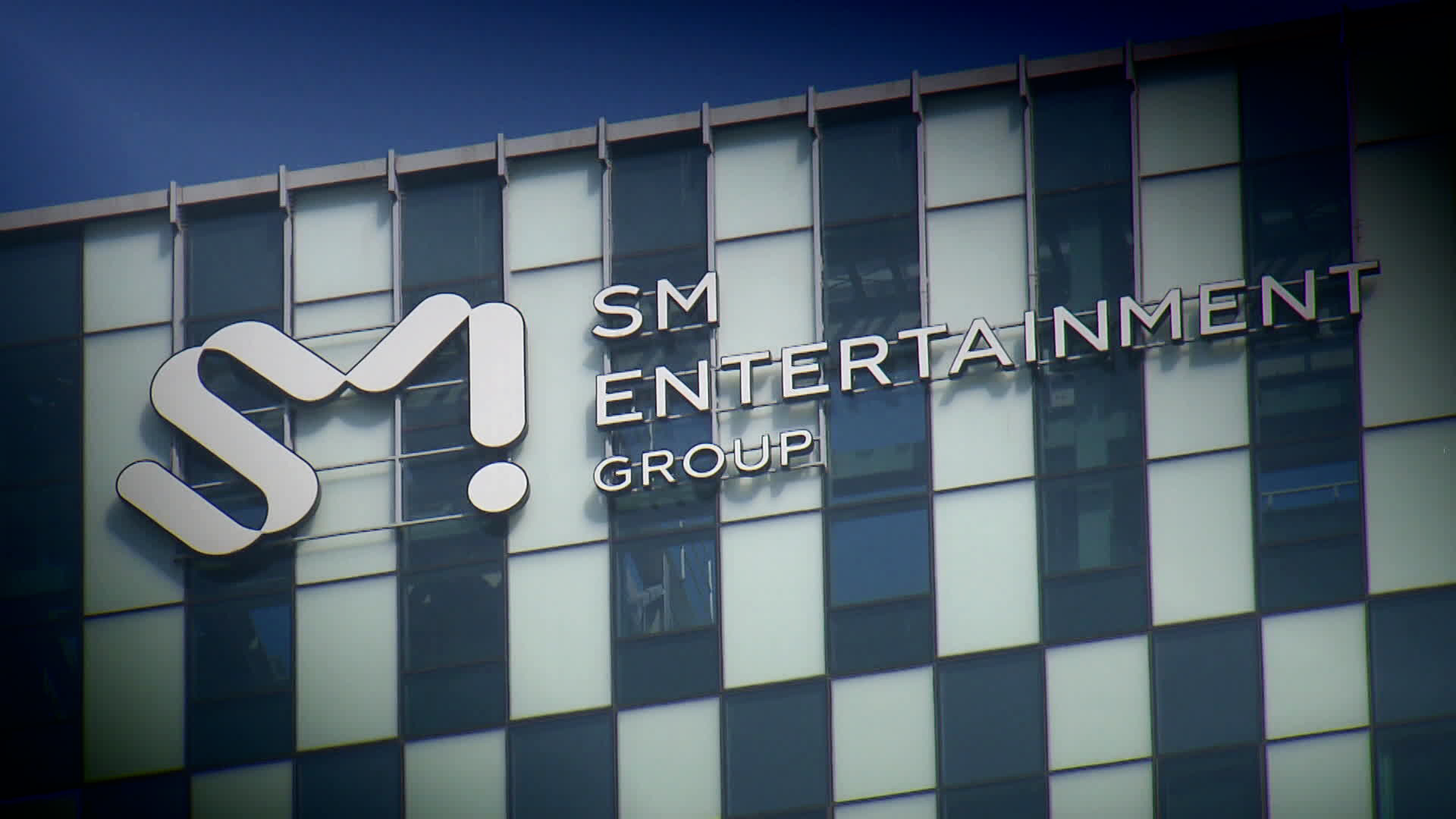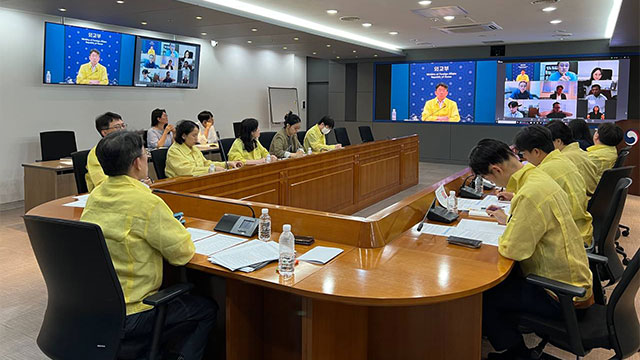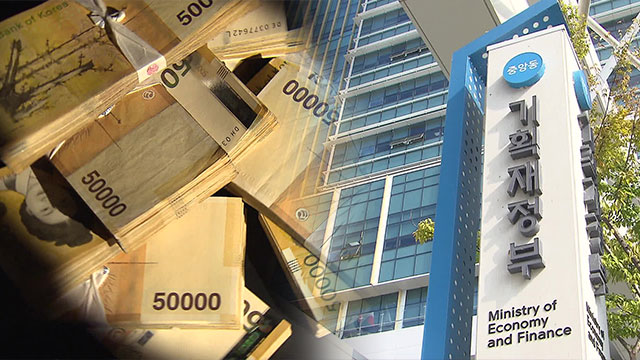[Anchor]
SM Entertainment has produced numerous idol groups.
Recently, the second-largest shareholder of this company is none other than Tencent, China's largest IT company.
Is it okay for China to aggressively enter the domestic content industry?
Reporter Kim Hyun-soo has the story.
[Report]
In April, a Korean hip-hop group returned to the Chinese stage after eight years, even releasing a Chinese-language album. Amid the movement to lift the Korean Wave ban, our entertainment industry seems to be gaining momentum in its entry into China.
Around the same time, there was a significant change in the management of SM Entertainment.
Chinese IT giant Tencent, has become the second-largest shareholder of SM.
SM announced a joint venture with Tencent, including the debut of Chinese idols, declaring its full-scale entry into the Chinese market.
[Shim Hee-cheol/Professor, Dong-A University Department of Entertainment Management: "It seems to be an intention to benchmark the DNA of K-Pop. Due to their mutual necessity and the development of the industry, we need to engage in exchange…."]
However, the influx of Chinese capital into SM, which is the origin of large domestic agencies and one of the top three agencies, carries a different significance.
Tencent's market capitalization is about 818 trillion won, which is 267 times that of SM. Even when combining the market capitalizations of the top four domestic agencies, the total amounts to only one-fortieth of Tencent's.
In particular, Tencent has already secured a significant amount of shares in other major domestic agencies.
[Lee Dong-yeon/Professor, Korea National University of Arts Traditional Arts Department: "If we do not carefully examine such Chinese investment companies, the Korean content market could be sold off or become weakened in the long term…."]
With expectations for active cultural exchanges between Korea and China, the influx of Chinese capital raises questions about whether it will be an opportunity or a crisis, suggesting that our cultural content, led by K-Pop, is facing a survival test.
This is KBS News, Kim Hyun-soo.
SM Entertainment has produced numerous idol groups.
Recently, the second-largest shareholder of this company is none other than Tencent, China's largest IT company.
Is it okay for China to aggressively enter the domestic content industry?
Reporter Kim Hyun-soo has the story.
[Report]
In April, a Korean hip-hop group returned to the Chinese stage after eight years, even releasing a Chinese-language album. Amid the movement to lift the Korean Wave ban, our entertainment industry seems to be gaining momentum in its entry into China.
Around the same time, there was a significant change in the management of SM Entertainment.
Chinese IT giant Tencent, has become the second-largest shareholder of SM.
SM announced a joint venture with Tencent, including the debut of Chinese idols, declaring its full-scale entry into the Chinese market.
[Shim Hee-cheol/Professor, Dong-A University Department of Entertainment Management: "It seems to be an intention to benchmark the DNA of K-Pop. Due to their mutual necessity and the development of the industry, we need to engage in exchange…."]
However, the influx of Chinese capital into SM, which is the origin of large domestic agencies and one of the top three agencies, carries a different significance.
Tencent's market capitalization is about 818 trillion won, which is 267 times that of SM. Even when combining the market capitalizations of the top four domestic agencies, the total amounts to only one-fortieth of Tencent's.
In particular, Tencent has already secured a significant amount of shares in other major domestic agencies.
[Lee Dong-yeon/Professor, Korea National University of Arts Traditional Arts Department: "If we do not carefully examine such Chinese investment companies, the Korean content market could be sold off or become weakened in the long term…."]
With expectations for active cultural exchanges between Korea and China, the influx of Chinese capital raises questions about whether it will be an opportunity or a crisis, suggesting that our cultural content, led by K-Pop, is facing a survival test.
This is KBS News, Kim Hyun-soo.
■ 제보하기
▷ 카카오톡 : 'KBS제보' 검색, 채널 추가
▷ 전화 : 02-781-1234, 4444
▷ 이메일 : kbs1234@kbs.co.kr
▷ 유튜브, 네이버, 카카오에서도 KBS뉴스를 구독해주세요!
- Influx of Chinese capital in K-pop
-
- 입력 2025-06-15 05:23:07

[Anchor]
SM Entertainment has produced numerous idol groups.
Recently, the second-largest shareholder of this company is none other than Tencent, China's largest IT company.
Is it okay for China to aggressively enter the domestic content industry?
Reporter Kim Hyun-soo has the story.
[Report]
In April, a Korean hip-hop group returned to the Chinese stage after eight years, even releasing a Chinese-language album. Amid the movement to lift the Korean Wave ban, our entertainment industry seems to be gaining momentum in its entry into China.
Around the same time, there was a significant change in the management of SM Entertainment.
Chinese IT giant Tencent, has become the second-largest shareholder of SM.
SM announced a joint venture with Tencent, including the debut of Chinese idols, declaring its full-scale entry into the Chinese market.
[Shim Hee-cheol/Professor, Dong-A University Department of Entertainment Management: "It seems to be an intention to benchmark the DNA of K-Pop. Due to their mutual necessity and the development of the industry, we need to engage in exchange…."]
However, the influx of Chinese capital into SM, which is the origin of large domestic agencies and one of the top three agencies, carries a different significance.
Tencent's market capitalization is about 818 trillion won, which is 267 times that of SM. Even when combining the market capitalizations of the top four domestic agencies, the total amounts to only one-fortieth of Tencent's.
In particular, Tencent has already secured a significant amount of shares in other major domestic agencies.
[Lee Dong-yeon/Professor, Korea National University of Arts Traditional Arts Department: "If we do not carefully examine such Chinese investment companies, the Korean content market could be sold off or become weakened in the long term…."]
With expectations for active cultural exchanges between Korea and China, the influx of Chinese capital raises questions about whether it will be an opportunity or a crisis, suggesting that our cultural content, led by K-Pop, is facing a survival test.
This is KBS News, Kim Hyun-soo.
SM Entertainment has produced numerous idol groups.
Recently, the second-largest shareholder of this company is none other than Tencent, China's largest IT company.
Is it okay for China to aggressively enter the domestic content industry?
Reporter Kim Hyun-soo has the story.
[Report]
In April, a Korean hip-hop group returned to the Chinese stage after eight years, even releasing a Chinese-language album. Amid the movement to lift the Korean Wave ban, our entertainment industry seems to be gaining momentum in its entry into China.
Around the same time, there was a significant change in the management of SM Entertainment.
Chinese IT giant Tencent, has become the second-largest shareholder of SM.
SM announced a joint venture with Tencent, including the debut of Chinese idols, declaring its full-scale entry into the Chinese market.
[Shim Hee-cheol/Professor, Dong-A University Department of Entertainment Management: "It seems to be an intention to benchmark the DNA of K-Pop. Due to their mutual necessity and the development of the industry, we need to engage in exchange…."]
However, the influx of Chinese capital into SM, which is the origin of large domestic agencies and one of the top three agencies, carries a different significance.
Tencent's market capitalization is about 818 trillion won, which is 267 times that of SM. Even when combining the market capitalizations of the top four domestic agencies, the total amounts to only one-fortieth of Tencent's.
In particular, Tencent has already secured a significant amount of shares in other major domestic agencies.
[Lee Dong-yeon/Professor, Korea National University of Arts Traditional Arts Department: "If we do not carefully examine such Chinese investment companies, the Korean content market could be sold off or become weakened in the long term…."]
With expectations for active cultural exchanges between Korea and China, the influx of Chinese capital raises questions about whether it will be an opportunity or a crisis, suggesting that our cultural content, led by K-Pop, is facing a survival test.
This is KBS News, Kim Hyun-soo.
이 기사가 좋으셨다면
-
좋아요
0
-
응원해요
0
-
후속 원해요
0
















이 기사에 대한 의견을 남겨주세요.